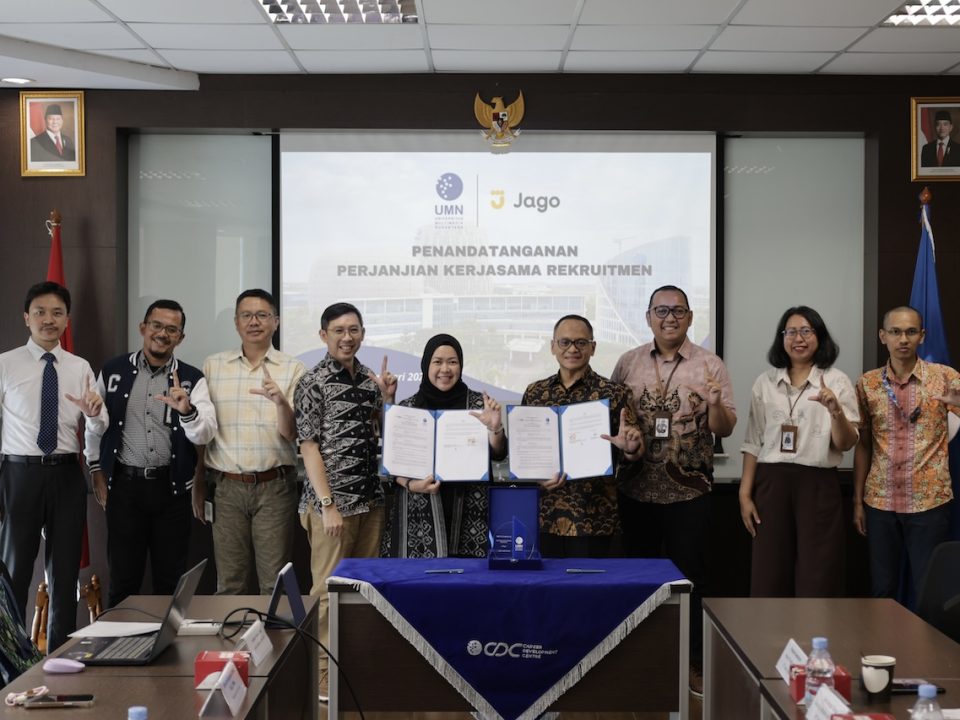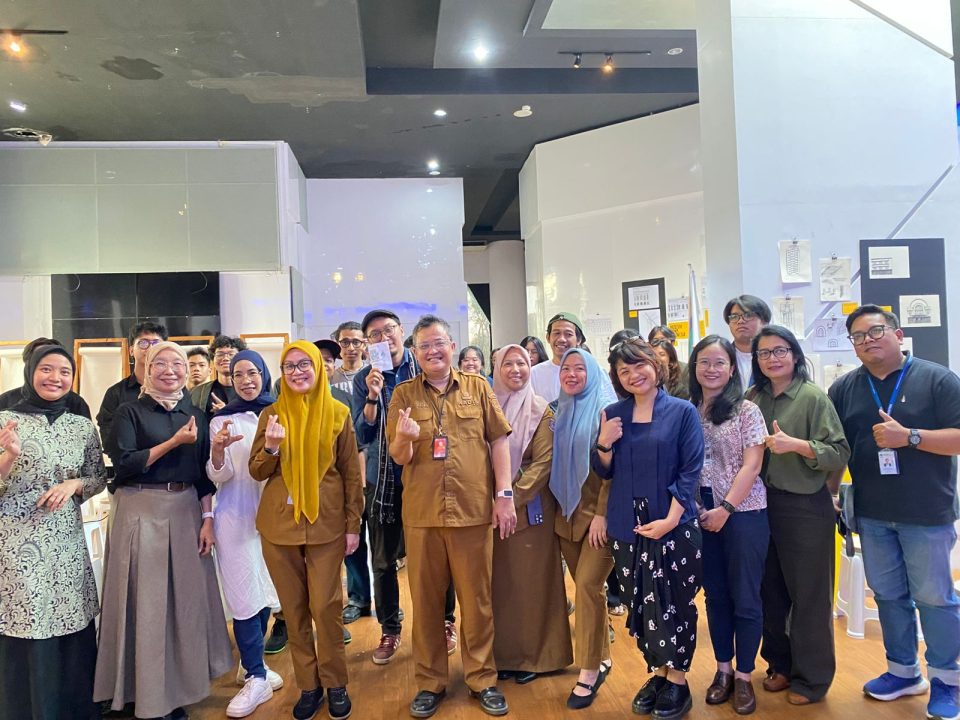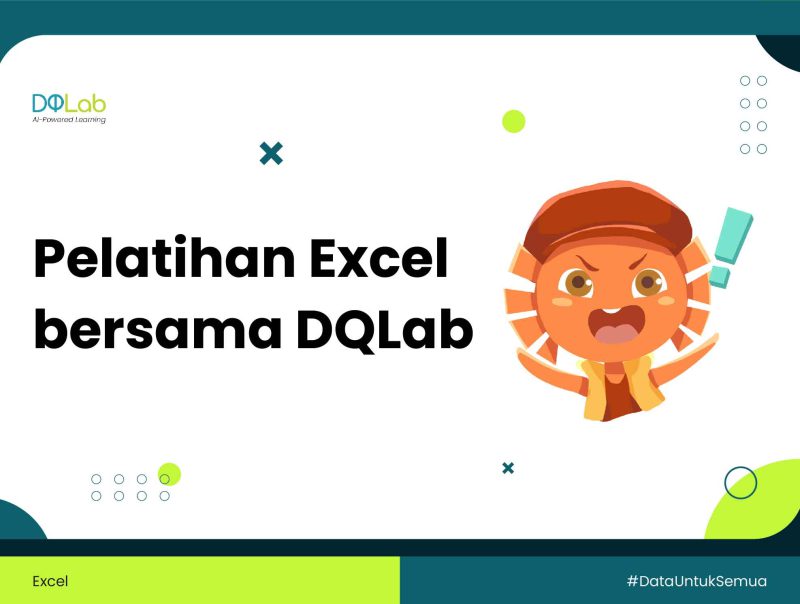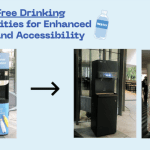
Stay Hydrated, Stay Green
December 4, 2024
Anutara Organizes Crochet Class with Emji
December 7, 2024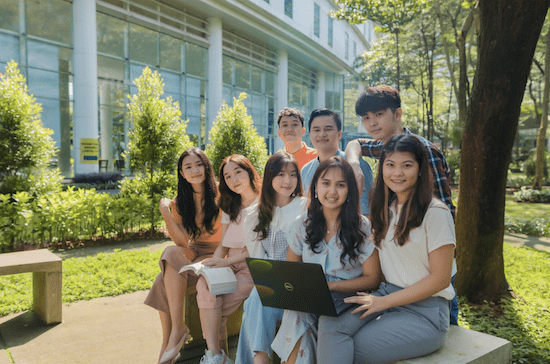
(Doc. UMN)
Universitas Multimedia Nusantara (UMN) shows a strong and ongoing commitment to achieving Sustainable Development Goals (SDGs) through real collaboration with NGOs and community groups. These partnerships take shape through student volunteering, community-based research, and the development of practical educational tools. From disaster preparedness training for children and people with disabilities, to plastic waste education in schools and coding programs for young learners, UMN’s efforts are grounded in real community needs. Other initiatives include digital literacy for underserved villages, clean water campaigns, and even support for religious schools through curriculum design. All these projects involve students not just as volunteers, but as active creators—helping to design apps, produce media campaigns, and build platforms that turn learning into real impact.
In 2024 alone, over 30 collaborative programs were carried out involving NGOs like the Indonesian Breastfeeding Mothers Association (AIMI) and the Positive Women’s Association (IPPI). These included campaigns on maternal health, digital marketing workshops for rural entrepreneurs, and technology-based curriculum development for schools. Students play a big part in these programs, not only volunteering but also designing solutions like mobile apps, websites, and creative media that help improve access to education, healthcare, and economic opportunities. This hands-on approach empowers students to grow as changemakers while supporting communities with sustainable, data-informed solutions.
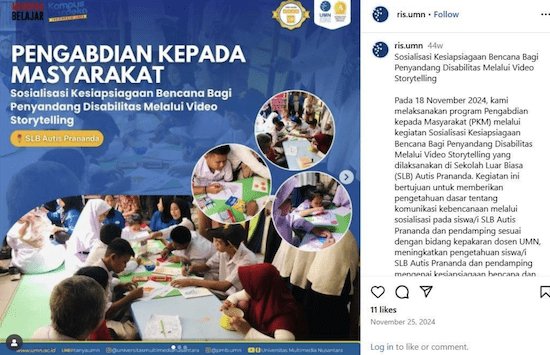
One important initiative led by Universitas Multimedia Nusantara (UMN) is the disaster preparedness awareness program tailored for people with disabilities, held on November 18, 2024, at Sekolah Luar Biasa (SLB) Autis Prananda. This community service activity used video storytelling to effectively communicate key disaster readiness information to students and their caregivers. Guided by UMN experts—including Dian Nuranindya, Charlie Tjokrodinata, Cendera Rizky Anugrah Bangun, Helga Liliani Cakra Dewi, and Riatun, the program aimed to enhance basic disaster communication knowledge and build preparedness among a group often overlooked in emergency planning.
By creating accessible educational resources through video storytelling, UMN addressed the critical need for inclusive disaster education that empowers people with disabilities. This program not only increased awareness but also contributed to fostering a safer, more resilient community. Through this research and educational effort, UMN actively supports SDG 10 (Reduced Inequalities), SDG 11 (Sustainable Cities and Communities), and SDG 13 (Climate Action), demonstrating how tailored, inclusive approaches can lead to meaningful social impact. Read more here.
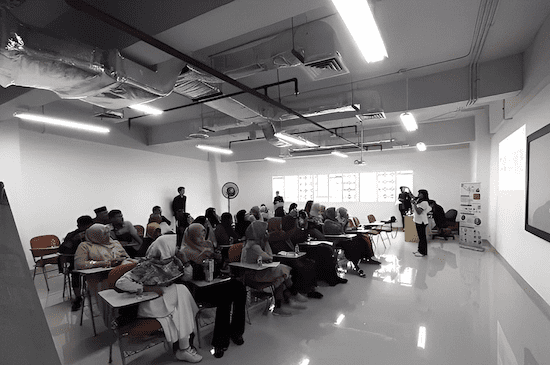
(UMN Community-based education on environment, 2024)
Another project worth highlighting focused on turning organic household waste into compost and multifunctional eco-enzyme. This workshop was held at Universitas Multimedia Nusantara (UMN) to help Desa Bojong Nangka become a greener, climate-friendly village. The goal was to teach residents practical skills and raise awareness about managing organic waste at home, which plays a big role in fighting climate change and protecting the environment. Experts from UMN, Dr. Arsa Widitiarsa Utoyo, Dr. Indiwan, and Dr. Eka—worked with students to lead the sessions. Through volunteering and creating educational materials, this community-based program supports SDGs 11, 12, and 13. It’s a great example of how UMN, NGOs, and local communities can work together to create real, sustainable change. Read the news posted by Suara Merdeka – Jakarta here.
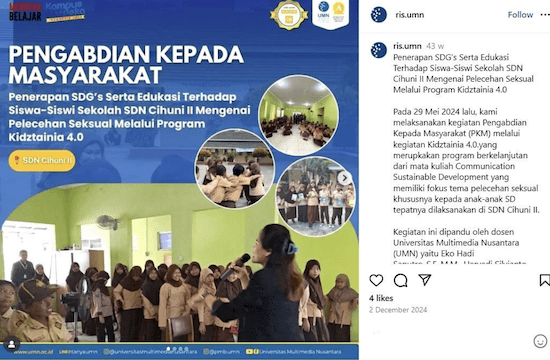
Through the Kidztainia 4.0 program, UMN students and lecturers worked directly with SDN Cihuni II to raise awareness about sexual harassment among elementary school children. By creating safe spaces for education and dialogue, the initiative helps reduce stigma and empowers children to recognize and respond to unsafe situations. This aligns with SDG 4 (Quality Education) and SDG 16 (Peace, Justice, and Strong Institutions), proving how academic engagement can drive real change in early-age protection. Read more here.
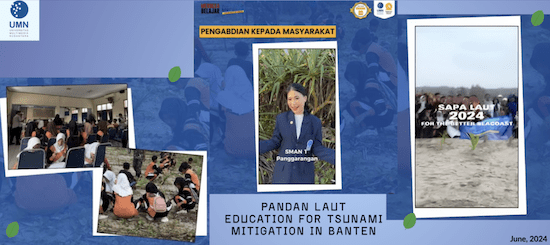
In June 2024, UMN lecturers and students introduced a community education program on Pandan Laut (sea grass) as a natural green belt to help mitigate tsunami risks along the Banten coast. Held at SMAN 1 Panggarangan, the initiative raised awareness among high school students about using native coastal plants as sustainable disaster prevention strategies. This initiative supports SDG 13 (Climate Action) and SDG 11 (Sustainable Cities and Communities), blending local wisdom with environmental resilience efforts. Read more here.
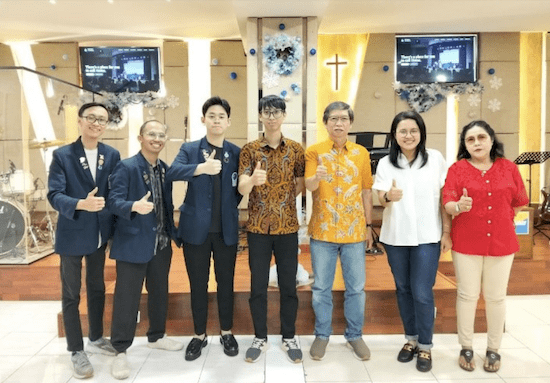
(UMN’s student volunteering & research-based program, December 2024)
UMN’s PKM team collaborated with the GPdI Hebron church in Gading Serpong to build a web-based Congregation Management Application, aiming to streamline how members access spiritual content and participate in church activities. Developed through a research-based program, this initiative supports SDG 9 (Industry, Innovation, and Infrastructure) and SDG 16 (Peace, Justice, and Strong Institutions) by promoting digital transformation within religious institutions. The project not only empowered students with hands-on experience in tech development but also enhanced the church’s capacity to manage its community transparently and efficiently.
These initiatives show that collaboration is essential to address complex global challenges. Through student volunteering, research programs, and the development of educational resources, strong partnerships with NGOs and community groups help advance key Sustainable Development Goals like quality education, reduced inequalities, and climate action. This collective effort from UMN builds a more inclusive, resilient, and sustainable future.

